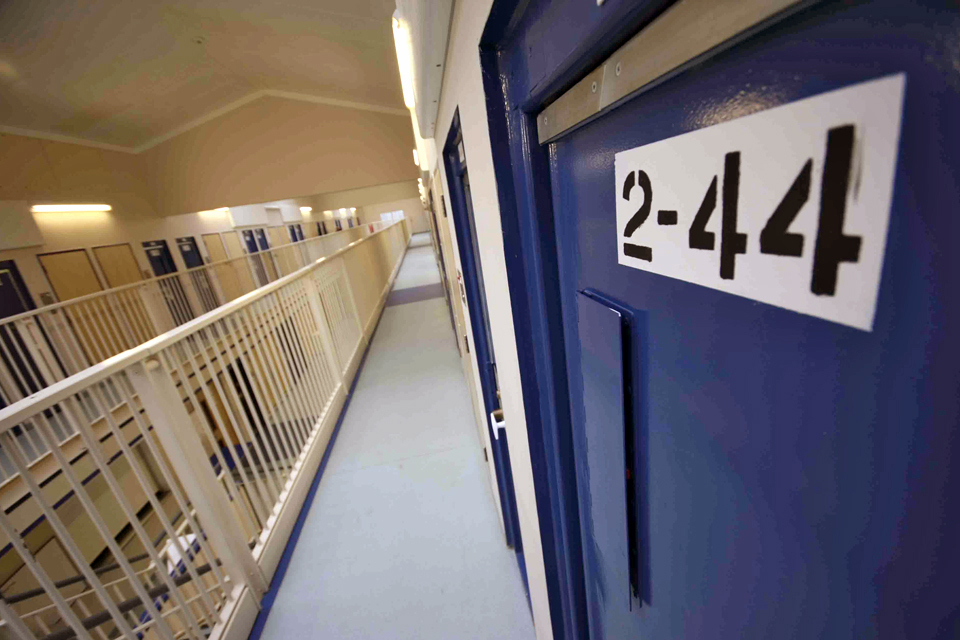
Ofsted and HMI Prisons say it is time to give prison education ‘the attention it deserves’
Published By GOV.UK [English], Fri, Sep 10, 2021 2:30 AM
Ofsted Chief Inspector, Amanda Spielman and Chief Inspector of HMIP, Charlie Taylor discuss the impact of the COVID-19 pandemic on prison education in a joint commentary published today.
The commentary also announces the launch of a new review of prison education, with an initial focus on reading.
The impact of COVID-19
The joint commentary draws on evidence from 25 remote visits to adult prisons in early 2021 and 10 progress monitoring visits undertaken by Ofsted between May and July this year. The findings highlight the significant impact the pandemic has had on the quality of prison education, but acknowledges that the quality of the provision was already poor and had seen little improvement in recent years.
The findings from these visits “paint a stark picture” of remote education provided in prisons throughout the pandemic. In most cases, this was limited to providing prisoners with in-cell work packs, with little face-to-face teaching or feedback, which proved a frustrating and demotivating experience for many prisoners. Packs were often not tailored to specific education needs of prisoners, many of whom have difficulty reading and need closer support in their learning.
Prisoners are typically some of the most educationally disadvantaged in society, with a significant proportion having special educational needs or disabilities (SEND) and low levels of literacy. One prisoner with dyslexia said he had been told he could not learn English or maths until face-to-face teaching resumed. On this issue, the commentary adds:
Given the large number of prisoners with suspected learning difficulties/disabilities, and prisoner reading levels similar to that of primary-age children, it is highly likely that remote education is not suitable for prisoners in the same way as for pupils with SEND.
Ofsted and HMIP also found that vocational education has been greatly affected, with prison workshops and other places for work and training forced to close. This left learners on vocational courses unable to complete practical elements of the curriculum. And while there is some evidence that the number of prisoners learning English and maths increased during the pandemic, this was mainly due to a lack of preferable alternatives.
Work experience opportunities have also been lost. Some prisons were not able to maintain links with employers and some businesses, that would usually employ prisoners, are facing increased financial insecurity. Moreover, disruptions to information, advice and guidance (IAG) services in prisons have exacerbated these issues. This has resulted in significant backlogs of prisoner inductions, which has meant that prison leaders do not know the educational starting points for many commentary includes a number of recommendations, including:
Prison leaders and education providers must make sure assessments are used to identify gaps in learning and to support learners back into the classroom as quickly as possible.
Prison leaders and education providers must make sure that there are as many vocational training opportunities and places as is practical as possible, while maintaining any social distancing guidelines.
Prison leaders must work with IAG providers to clear induction backlogs as a priority. All prisoners, including those on shorter sentences, should receive a timely and effective induction to education, skills and work when they are placed in prison.
Launching the prison review
In the autumn term 2021, Ofsted and HMI Prisons will be launching a review of reading in prisons. The commentary notes that “Sadly, prison education is in a very poor state. It is time to give it the attention it deserves” and as a result, “we are setting up a review into prison education over the next year. This will start with a focus on reading in prisons as we return to full inspection in September. We will look at how reading is taught in prisons, how it is assessed and what progress prisoners make.”
Press office
8.30am to 6pm Monday to Friday 0300 013 0415
Press release distributed by Media Pigeon on behalf of GOV.UK, on Sep 10, 2021. For more information subscribe and follow